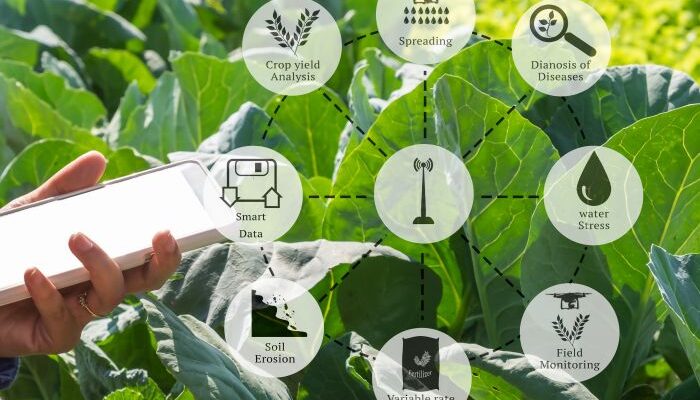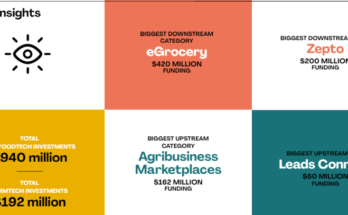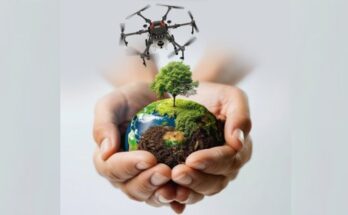Mumbai: Cropin Technology, a leading global agritech firm facilitating intelligent agriculture, has unveiled ‘akṣara,’ the industry’s inaugural purpose-built open-source Micro Language Model (µ-LM) for climate-smart agriculture. Developed on the foundation of Mistral’s model, akṣara is released under the Apache 2.0 License with no restrictions. “Akṣara is crafted to tackle challenges encountered by underserved farming communities in the Global South. It aims to eliminate knowledge barriers, empowering all participants in the agriculture sector to create cost-effective and scalable AI solutions. Cropin aims to democratise access to digital technologies and modernise agriculture for the 21st century. By providing contextual, factual, and actionable information, Cropin empowers agricultural stakeholders, developers, and researchers to address global issues such as food security, climate change, and resource conservation, including water and soil management and regenerative agricultural practices,” Cropin said.
“The initial release of Akṣara will focus on nine key crops: paddy, wheat, maize, sorghum, barley, cotton, sugarcane, soybean, and millets, across five countries in the Indian subcontinent. These crops play a crucial role in fulfilling global food needs and serve as staples for populations in the Global South. Developed by Cropin and hosted on Hugging Face, Akṣara is an efficient and scalable micro-language model (µ-LM), based on the Mistral-7B-v0.2 architecture. In acknowledgement of the environmental impact associated with large language models (LLMs), Cropin has optimised Akṣara’s size, compressing it from 16-bit to 4-bit using Quantization and Low-Rank Adapters (QLoRA). Comparative tests show that Akṣara is approximately 40 per cent more relevant than GPT-4 Turbo, based on randomly selected test datasets evaluated through the ROUGE (Recall-Oriented Understudy for Gisting Evaluation) scoring algorithm, ” the agritech company informed.
You may also like to read – AI-powered agri solutions empower farmers with actionable insights; speaks Satyukt Analytics founder
“Fine-tuning involved over 5,000 high-quality question-response pairs tailored to agriculture, encompassing more than 160k tokens within the contextual framework. These figures are poised to grow as we expand to encompass additional crops, geographic regions, and use cases. To maintain fidelity to queries, the model is anchored through techniques like RAG (Retrieval Augmented Generation), cross-referencing authoritative subject matter expert knowledge bases,” the Cropin said.
“In today’s intricate agricultural sphere, farmers and stakeholders grapple with meeting the escalating global demand for ample, safe, and nutritious food, particularly acute in the Global South. These regions confront mounting vulnerability to shifting weather patterns as climate change disrupts traditional agricultural norms, rendering erstwhile knowledge obsolete in the era of climate fluctuations. Variables such as irregular or extreme precipitation, unpredictable heatwaves, and heightened pest and disease pressures impede conventional farming methods, diminishing yields, productivity, and profitability. Cropin endeavours to bridge this divide with Akṣara, leveraging the potential of GenAI to furnish insights into contemporary farming practices, precise information, and tailored farm advisories. For instance, it can recommend optimal inputs for crops like rice or maize amid specific agro-climatic conditions or dispense thousands of climate-smart agricultural advisories and related topics,” the agricultural technology company informed.
You may also like to read – More intelligent AI algorithms for the agriculture sector coming soon
“This initiative underscores Cropin’s dedication to knowledge sharing and the ethical, responsible utilisation of AI in agriculture. The Cropin AI team consulted Google’s People + AI Guidebook and engaged in discussions with Google’s Responsible AI team to steer the model’s design process. The objective was to ensure the model adhered to key principles of responsible AI, mitigated biases, encouraged the adoption of AI for sustainable agricultural practices (such as those involving biological controls, soil and water conservation, companion planting, and preserving beneficial plants and insects), and ensured equitable distribution of benefits among farming communities in the Global South,” the company claimed.
This open-source endeavour aims to assist agronomists, agricultural scientists, field personnel, and extension workers, gradually extending its services to farmers in multiple languages to address the need for local language support. Cropin believes that transforming global food systems necessitates arming industry thought leaders and researchers with premier decision-making tools and information, disseminated effectively at the grassroots level,” Cropin Technology said.
You may also like to read – AgriClimate Tech – Iyris partners with Magrabi Agriculture to expand hot climate agriculture technologies
“While Artificial Intelligence (AI) holds the potential to revolutionise agriculture, challenges such as accessing large-scale structured data, expertise, and storage/compute infrastructure hinder widespread adoption. Open-source projects like Akṣara play a pivotal role in expanding AI utilisation and expediting innovation. With Akṣara, Cropin reaffirms its leadership in AI for food systems. The company initiated AI innovations in agriculture half a decade ago, at a time when many couldn’t envision AI applications in farming. This journey led to Cropin’s declaration of intent to imbue intelligence into every acre of the world’s cultivable lands, followed by the development of an AI-powered Food Security Decision Intelligence solution in collaboration with AWS. Cropin seeks to collaborate with industry stakeholders and academia to accelerate its vision of a globally digitally empowered, data and AI-driven agricultural landscape. Akṣara represents a significant stride in this odyssey,” the agritech company further said.
“Out of the world’s 600 million farms, five out of six are small, each covering less than two hectares. Despite utilising only about 12 per cent of agricultural land, these small farms contribute approximately 35 per cent of the world’s food production. The objective is to leverage AI investments for substantial impact and to democratise AI access across the ecosystem, encompassing academia, development agencies, governments, and agricultural enterprises. This democratisation aims to empower farmers globally, starting with smallholders in the Global South,” Cropin said.
You may also like to read – World Earth Day: Drones Safeguarding Earth for a Sustainable Tomorrow
Speaking at the announcement, Krishna Kumar, Founder & CEO of Cropin Technology, said, “In an era where Large Language Models are reshaping jobs, businesses, and customer interactions, the focus has shifted to industry-specific models trained on specialised and comprehensive domain data as the ‘next big thing.’ These models have the potential to revolutionise agriculture, ushering in a new era of technology-driven farming in a sector that has historically seen limited technological advancements. Domain-specific AI models tailored for agriculture are poised to attract substantial investments, offering a practical and economically viable pathway to transform food systems. Akṣara reaffirms our commitment to spearheading the technology-driven agricultural revolution in the coming years, with a significant impact on the lives of small-scale farmers.”





